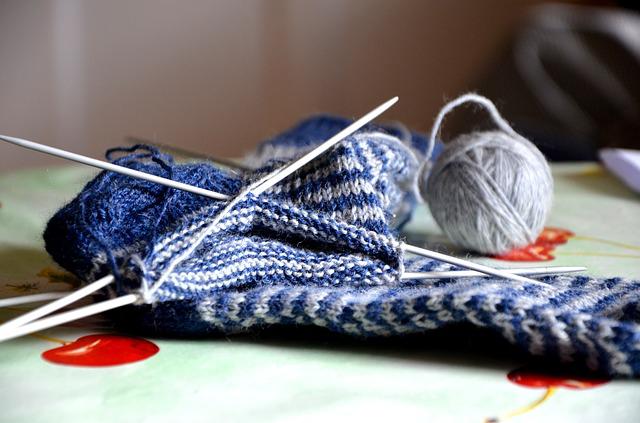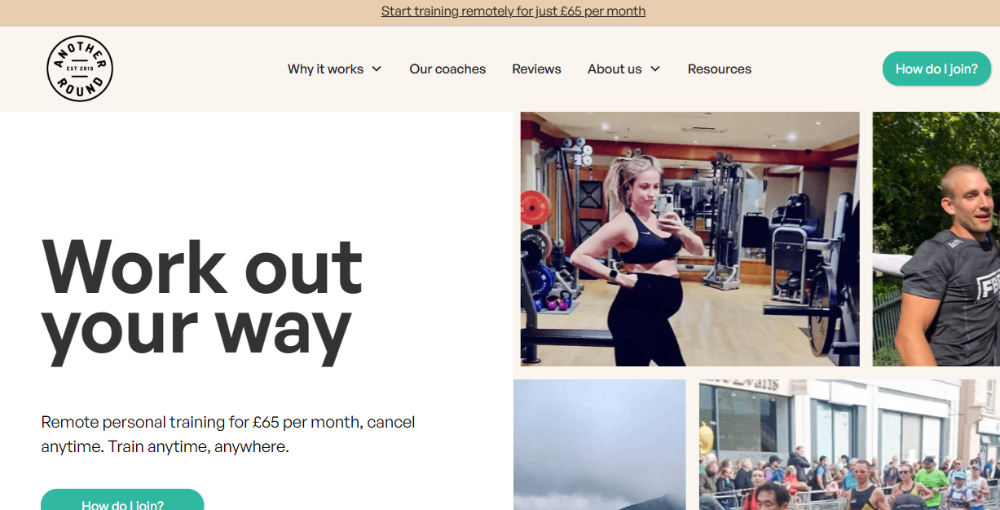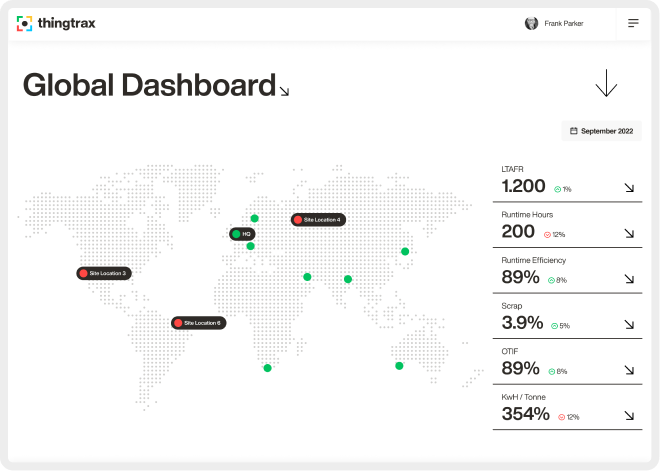How to Price Handmade Goods and Crafts

by Startacus Admin
If you are starting a craft business, chances are you are doing it because you are following your passion. More than likely it is a hobby that has just taken on a life of its own or that you want to dedicate proper time to, as opposed to whiling  away the hours in a regular job. Being able to do something you love every day? Well...it’s not really like work then is it?
away the hours in a regular job. Being able to do something you love every day? Well...it’s not really like work then is it?
The thing to remember though is that if this is now to become a business and thereby be your main source of income, you’ll need to be pretty strict from the off with your pricing. Here are a few basic tips for pricing your handmade goods or crafts that should help.
Set yourself a wage
The main difference between crafting as a hobby and as a business is of course the fact that you are trying to earn money from it. If this is to be viewed as a job, you’ll need to treat it accordingly and pay yourself a wage. The cost of your wage or hourly rate of pay will have to then be factored in when you are working out how much an item costs you to make and subsequently how much you should sell it for. A good option is to calculate your hourly rate as at least the national minimum wage. That way you can ensure that you are not undervaluing your labour.
Work out the true cost
The total cost of the item that you are making has to be calculated properly. That means working out the cost of any materials that you use, your own hourly rate of pay, any equipment you use, any electricity you use and of course the cost of any marketing or advertising. To get the true cost of making a particular item, these costs have to be factored in. If you omit some of these elements, you are doing yourself a real disservice and it will have a real impact on any profits that you make.
Calculate a Trade and Retail Price
To market your crafts as a business, you will most probably be aiming for two types of customer - retail customers who will buy from you directly and trade customers who will sell your products on your behalf. Obviously the trade customers will expect to earn a profit from selling your products so you will need to work out a wholesale price as it were, to make it worth their while. There are lots of suggestions for working out these prices and generally the trade price is considered to be half of the recommended retail price. How you determine your retail price is of course entirely up to you. You will need to make sure that you not only cover your costs fully but that you are generating a profit from each item that you make. If you don’t, your ‘business’ is really still a hobby.
Do look at the competition
To help you with working out pricing, it can be worthwhile looking at what your competitors are charging. This however should only be to give you a rough guide. Their costs may be entirely different to yours, the products they make may be very different in terms of quality. Don’t assume that you should match their prices or undercut them. You could be really undervaluing your work if you do that.
Value your work
The products that you make are no doubt all labours of love. They are unique and different since they are made entirely by you and that is where their value lies. Remember - the price that you charge reflects what you view your products’ value to be. A knockdown cheap price may attract lots of customers but surely is more indicative of a mass produced item rather than a handmade one and is unlikely to generate any real profit for you. As long as you can justify why your product is priced accordingly, you should be fine. Use its uniqueness, the craftsmanship required to make it and the materials used when you are marketing or advertising it and customers should respect the prices you set.
Pricing isn’t something that everybody gets right straight away. However for your crafting to become a viable business, you will have to get it right sooner rather than later.
We hope these basic tips for pricing your handmade goods or crafts help if you are making the transition from hobby to business. Got any other tips that you’d like to share? Why not let us know over at the forum...
If you like what you see here on Startacus and want to get involved yourself, why not become a member of our growing community by joining for free here! Or... if you prefer, why not get features like this direct to your inbox by signing up to receive our bi-monthly newsletter. Simply enter your email address and we'll be in touch.
Subscribe to our newsletter
If you would like to receive our startup themed newsletter, full of the latest startup opportunities, events, news, stories, tips and advice, then sign up here. How Manufacturing Businesses Can Reduce Energy Costs
How Manufacturing Businesses Can Reduce Energy CostsGot a business in the manufacturing sector? These tips on how you can reduce energy costs while being more sustainable are well worth a read...
 SureIn Secures €4M to Close the SMB Insurance Gap
SureIn Secures €4M to Close the SMB Insurance GapInnovative InsurTech startup SureIn announces a €4M Seed round to further its mission of making insurance easy, transparent and hassle-free for SMBs.
 How IoT Is Revolutionising Consumers' Daily Lives
How IoT Is Revolutionising Consumers' Daily Lives Nassia Skoulikariti, Director of IoT Programmes, Mobile Ecosystem Forum shares some insights on how IoT is having a significant impact on all our lives.
 How to invest in tech companies with the help of AI
How to invest in tech companies with the help of AIRoger James Hamilton, Founder and CEO of Genius Group, a world-leading entrepreneur Edtech and education group, discusses how introducing a globalized curriculum will help better prepare students.
 SuperFi raises $1M pre-seed funding round
SuperFi raises $1M pre-seed funding roundSuperFi, the debt prevention platform, has announced a $1m pre-seed funding round to support people during the cost of living crisis.
 Startups rely on AI & sustainability for new partnerships
Startups rely on AI & sustainability for new partnerships41 startups from 13 countries, including the UK, have been selected for the 8th Kickstart Innovation program, one of Europe’s leading innovation platforms.
 Another Round closes £300k Seed round to revolutionise personal training
Another Round closes £300k Seed round to revolutionise personal trainingPersonal training platform Another Round has secured £300k in its latest fundraise, including investment from angels and its community.
 Thingtrax Secures £4.3M
Thingtrax Secures £4.3MThingtrax Secures £4.3M to Empower Manufacturers to Build the Factories of the Future
 A measure of inflation relief for small firms
A measure of inflation relief for small firmsA measure of inflation relief for small firms sees transport costs fall but service price increases remain elevated
 A look at HR tech startup HR DataHub
A look at HR tech startup HR DataHubBedfordshire-based HR tech startup HR DataHub has built a range of tools for HR departments
Published on: 11th April 2013
If you would like to enable commenting via your Startacus account, please enable Disqus functionality in your Account Settings.







- SureIn Secures €4M to Close the SMB Insurance Gap 15th Aug 2023 Innovative InsurTech startup SureIn announces a €4M Seed round to further its mission of making insurance easy, transparent and hassle-free for SMBs.
- SuperFi raises $1M pre-seed funding round 28th Jul 2023 SuperFi, the debt prevention platform, has announced a $1m pre-seed funding round to support people during the cost of living crisis.
- Startups rely on AI & sustainability for new partnerships 27th Jul 2023 41 startups from 13 countries, including the UK, have been selected for the 8th Kickstart Innovation program, one of Europe’s leading innovation platforms.
- Another Round closes £300k Seed round to revolutionise personal training 21st Jul 2023 Personal training platform Another Round has secured £300k in its latest fundraise, including investment from angels and its community.







 Daniel Dierkes, David Schara, and Maximilian Geißinger 2.jpeg)

.jpg)




















